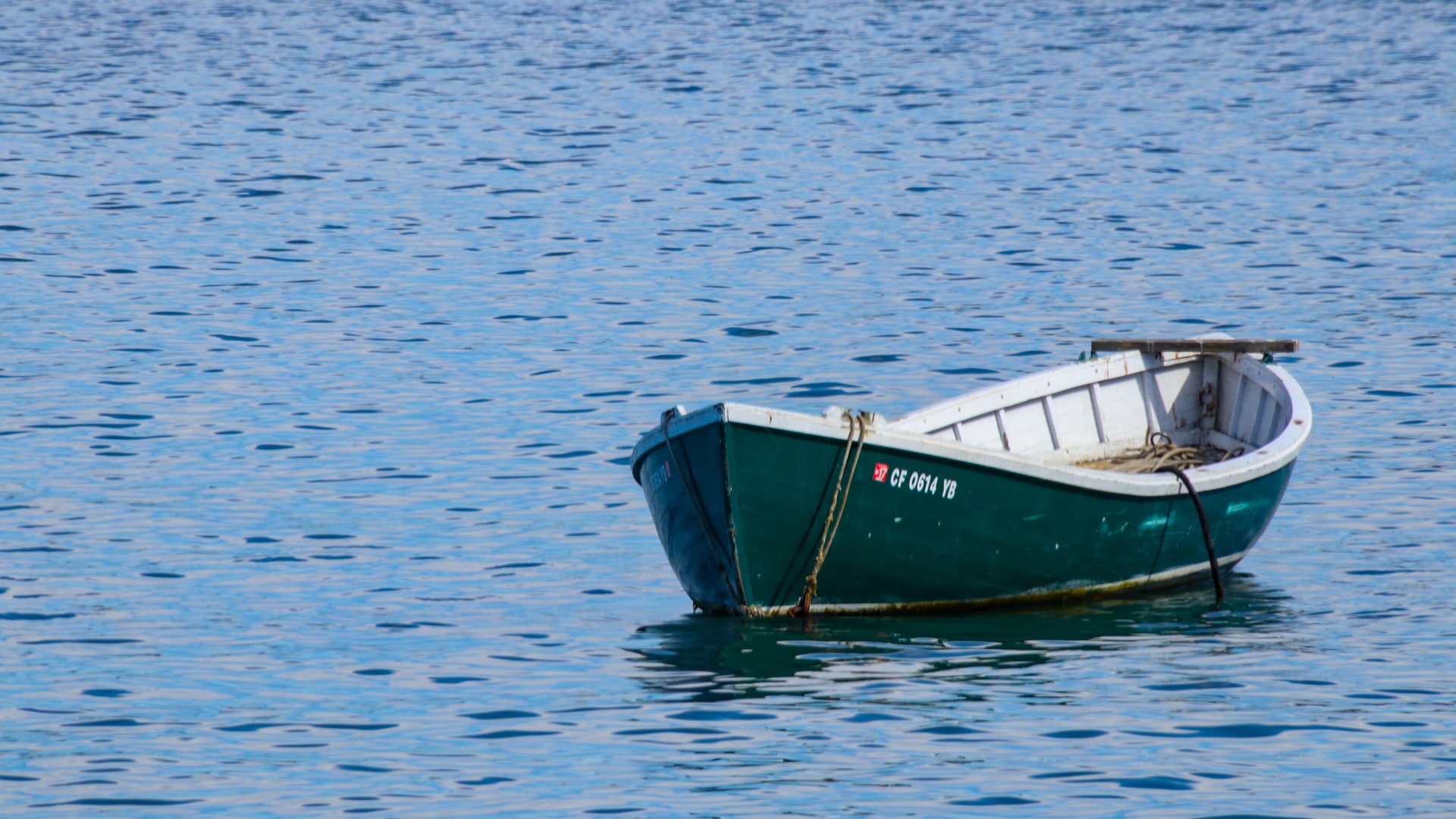Drowning after falling overboard from a small vessel is one of the leading causes of boating fatalities in the United States. Luckily, there are ways to reduce this risk, so you don’t spend your days in a bubble at home.
We’re discussing those actions below in detail, but if you’re here to get a short answer for your Boat Ed exam or quiz question, it should be the following:
You can reduce this risk of falling overboard from small boats by balancing the weight of people and gear, avoiding overloading the boat, keeping your body central with a low center of gravity, avoiding standing up, as well as always maintaining three points of contact with your hands and feet.
How to Reduce the Risk of Falling Overboard From a Small Boat
Below, we’re providing a more detailed answer if you want to make sure that you don’t end up falling overboard from a small vessel. These tips can also reduce the risks of capsizing and swamping your small boat.
1. Maintain Your Center of Gravity
If you’re planning to ride in a small boat, then you need to take extra care to ensure that you don’t fall overboard. One of the most effective ways to reduce this risk is to rely on your center of gravity.
Maintaining your center of gravity means that you should position yourself in the center of the boat. At the same time, you need to make sure that your center of gravity is very low.
As such, always keep your shoulders inside of the gunwales to prevent the boat from tipping to one side. Also, try to find a comfortable spot and stay as still as possible.
2. Keep the Onboard Weight Evenly Distributed
Another problem you need to overcome to avoid falling overboard from a small board is distributing the onboard weight in the wrong way. This can cause the boat to lean in one direction more than the other, potentially resulting in falling overboard.
So before you hit the water, make sure that the onboard weight is evenly distributed. This involves balancing all of the weight in the boat (including the passengers and all the gear) while avoiding overloading the boat.
Here are some tips to ensure even weight distribution:
- Don’t bring items unless you really need them with you. After all, a small boat doesn’t have a large weight capacity as a bigger boat does, so you make sure you use the limit wisely.
- Since they’re much easier to overload, be extra mindful of the weight limit of the small boat. Overloading the vessel with passengers and gear can easily cause capsizing or falling overboard.
- Keep a chunk of the weight at the back of the boat to reduce the risk of a capsize.
3. Remain Seated and Stay Still
A common reason why people fall overboard from small boats is that they move around far too much. In a small boat, you should remain still unless movement is absolutely necessary.
Don’t move around frequently, and when you do have to move, always maintain three points of contact with the boat. This means keeping two feet on the boat and moving only one hand or keeping two hands on the boat and moving a single foot.
The goal here is to restrict your movement as much as possible while always having a firm grip on the boat. It also goes without saying that you shouldn’t stand up on the small boat once it’s in motion.
4. Control Your Speed and Slow Down
A lot of people enjoy boating for the thrill of an adrenaline rush. It’s totally fine if this is why you’re in it, but safety should always come first.
Since speeding is one of the main causes of drownings and boat crashes, it’s crucial to learn how to control speed and know when to slow down.
You need to make sure that the boat’s speed is suitable for the conditions of the water you’re riding in. If you’re always speeding, there’s a bigger risk you won’t get enough time to resolve any problem that might occur.
5. Don’t Overestimate Your Skill Level
No matter the activity you’re engaged in, you should never bite off more than you can chew while in the water. Boating is no exception to this rule, even if it’s a small vessel.
If you’re going to be piloting a small boat, you must be realistic when it comes to your skill level. Mistakenly believing that you can handle harsh waters can be deadly if you find yourself in such a situation.
The same goes for handling any boating condition. If you’re wrong, you’re simply putting yourself and your passengers in danger. Overestimating your skill level out on the water may be the last mistake you ever make.
6. Always Keep a Clear Head
In many cases, people fall overboard from small boats because they ride without a clear head. It may be because they have too much on their minds or because of alcohol intake or substance abuse.
If you’re planning on hitting the water, you want to avoid such issues at all costs. Never go boating if you’ve been drinking — that’s just a recipe for disaster.
While boating, you must be level-headed enough to react quickly and appropriately in case of an emergency.
7. Wear Your PFD
All passengers in the small boat must wear a personal floatation device (PFD) or life jacket as long as they’re on board just in case they do go overboard. Yes, a PFD might not prevent you from falling overboard, but it can save your life.
Wrap Up
Falling overboard is a major risk on small boats. You can reduce this risk by balancing the weight of people and gear, avoiding overloading the boat, keeping your body central with a low center of gravity, avoiding standing up, as well as always maintaining three points of contact with the boat.

